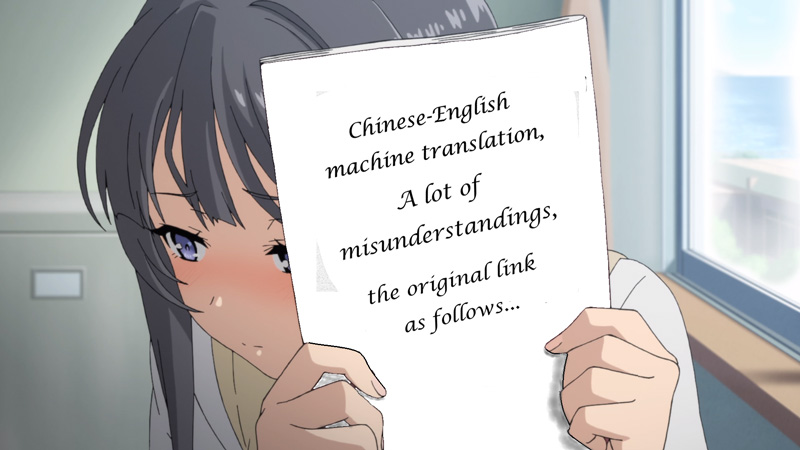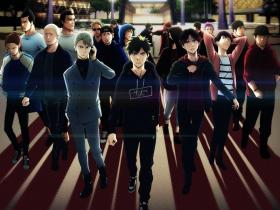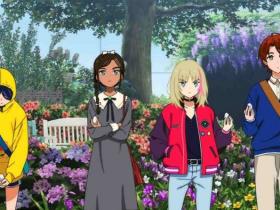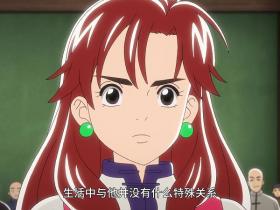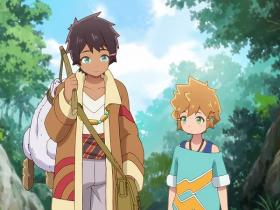I haven't seen animation switch to the new Xiake line these days. Viewers prefer to watch movies with silly but powerful men like Liancheng Jue and Xiake line. This version of the new Xiake line seems to lengthen the ending. Shi broke the sky to recognize his ancestors and return to his family. There is also a faint prediction that Shi qingminrou lived with Xie Yanke with his son and daughter-in-law and went to seclusion in the mountains and forests. The spectators feel a little exaggerated about this ending,Because Dongling hates the ending of retreating from the Jianghu.

In fact, the ending of the protagonist of the Battle Theme story (wider than the martial arts) is nothing more than these three kinds: War death, seclusion in the mountains and forests, which are not finished (meeting new challenges). As a man fan and shareholder, spectators have their own views on these three kinds of outcomes. They look at these outcomes from the dimension of investment.
First of all, from the perspective of growth space, the protagonists of these three kinds of endings
Died in war correspond to negative growth space, retired mountains and forests correspond to zero growth space, and there is still good growth space to meet new challenges.
Then, regard those heroes as enterprises and worship the heroes as buying his shares.
It's sad that the investment failed. Hero, I really don't want him to fall like this. It's hard in my heart. Many people don't want to believe the ending of the ronin sword heart star frost, and their feelings are unspeakable.
The hero is tired and wants to live a plain and happy life. The hero himself is usually the first shareholder. At this time, the choice is to cash out at a high position. What are the shareholders' feelings at this time? They still have endless aftertaste. They sigh and praise for the hero. They feel good, full of happiness, and a little disappointed. Ready to find another film to replace, ready to change hands. Then I can only ha ha. It depends on who runs early. Those who don't run away have become the legendary great Xia - the plate receiving Xia.
If it is not finished ("he will meet higher challenges"), the protagonist of this ending generally has room for development. While being happy, I can also be full of expectation and full of confidence in the further growth of heroes. Everyone is looking forward to a sequel, a big sale of peripheral products, and a win-win situation for heroes and investors.

Since such a thought, spectators no longer like characters like Linghu Chong and Zhang Wuji. The great Xia who holds the idea of retiring from the Jianghu and enjoying happiness vaguely conveys the values aiming at cash out and leaving the scene. From the results, the protagonists of such stories often have the following characteristics: they want a good life but can't, have deep hatred or have to perform special tasks. They wandered the Jianghu involuntarily. Even if they did something to help justice, they mostly followed the trend. Holding this value or purpose, investors and entrepreneurs are more likely to develop a gambling investment relationship, which is called an unhealthy stock market.
Fortunately, visitors have seen DRAGON BALL, the BLEACH, the heart of Swordsman and so on. Knowing that there are such"entrepreneurs"who do not take retiring from the Jianghu as their lifelong goal, such as becoming stronger, becoming a martial Taoist, protecting others and killing themselves into benevolence, they can regain a little confidence in the stock market.
In short
If you want to set up idols and examples from combat works, it's better to choose the heroes in the works to be continued, because such heroes have more ambitious goals and more growth, and the stereotypes can be corrected.

At the end of my thinking, I also thought of a group of entrepreneurs specializing in charity, who seem to have retired and did not. Is there a great Xia who jumps out of these three endings? Let me recommend Xiao Feng, who chose to commit suicide, the best of his examples.

